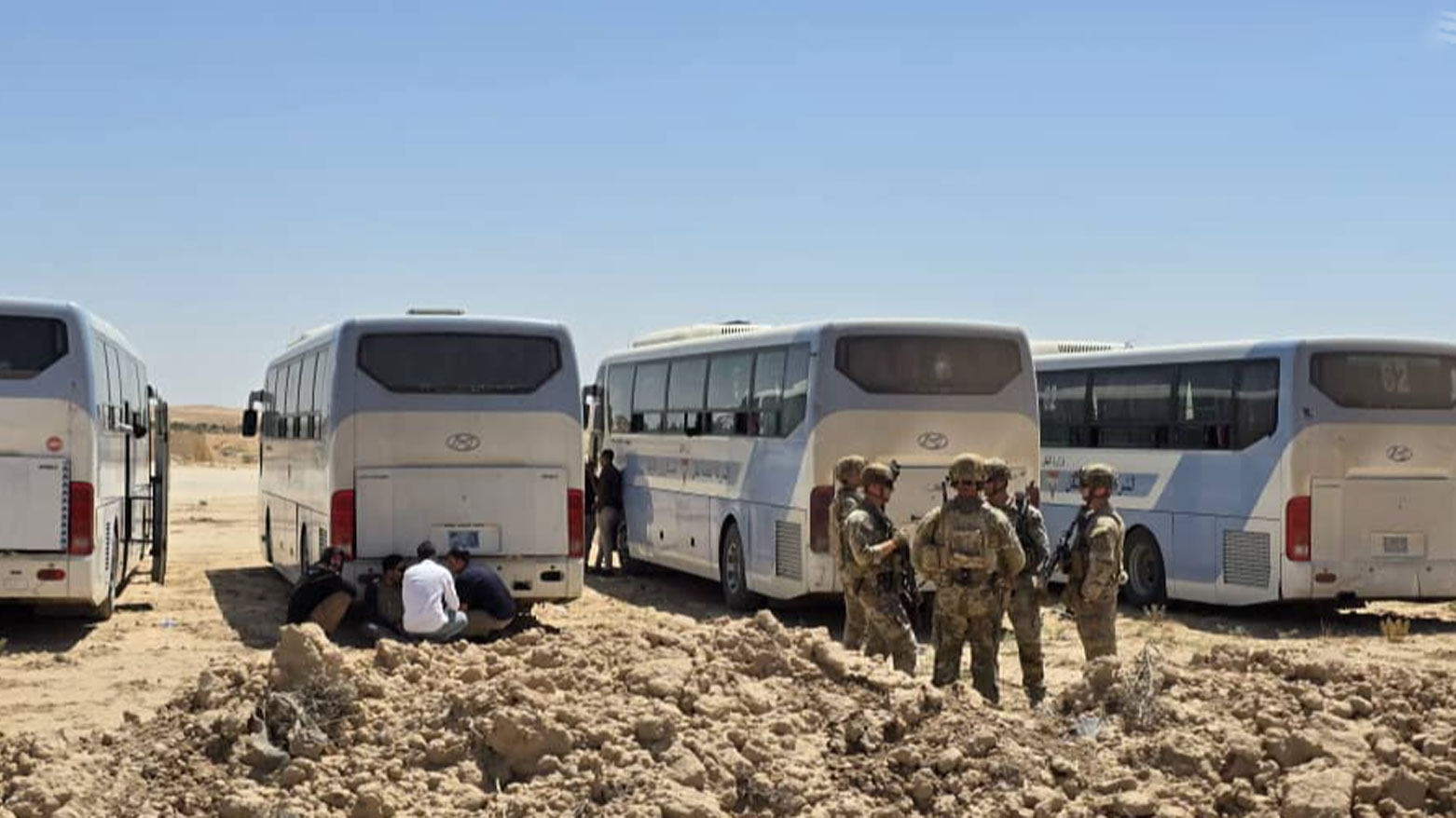Over 200 Iraqi Families Repatriated from Syria’s al-Hol Camp Under Tight Security Measures
“U.S. troops provided support and security for the returning families to make sure the convoy reached its destination without incident,” Haji said.

ERBIL (Kurdistan24) — More than 200 Iraqi families have been repatriated from the notorious al-Hol camp in Syria’s Hasakah province and returned to Iraq under strict security arrangements coordinated by international coalition forces.
Shukri Haji, the head of the departure office at al-Hol camp, told Iraqi media that this marked the 26th convoy of Iraqi returnees sent back to their home country since the beginning of the year. “This convoy included 223 families, totaling 832 individuals,” he said.
Haji explained that the repatriation process is ongoing for Iraqi families who voluntarily request to return. “The return of these Iraqi families is being carried out in coordination between the Autonomous Administration of North and East Syria and the Iraqi government,” he noted.
He added that the families were transported using more than 20 buses and were escorted by American forces to ensure their safe arrival. “U.S. troops provided support and security for the returning families to make sure the convoy reached its destination without incident,” Haji said.
Earlier in April, another batch consisting of 241 families—865 people in total—was also transferred from the al-Hol camp back to Iraq.
The Iraqi Ministry of Migration and Displacement had previously confirmed that over 15,000 individuals have already been repatriated from al-Hol, most of whom are women and children. However, more than 12,600 Iraqis still remain in the camp, awaiting transfer.
Al-Hol camp, located in northeastern Syria, has long been considered one of the region’s most volatile and complex humanitarian and security challenges. Originally established to house refugees and internally displaced persons during the Syrian civil war, the camp later became home to thousands of individuals associated with the Islamic State (ISIS), either through family ties or forced displacement.
The majority of its remaining residents are women and children, many of whom are the relatives of former ISIS fighters. Conditions in the camp have drawn international concern due to overcrowding, deteriorating health services, and the risk of radicalization within its confines.
Iraq has been steadily working to repatriate its nationals from al-Hol as part of its broader strategy to address post-ISIS reconciliation, deradicalization, and reintegration. However, the process remains slow and sensitive, complicated by security fears, social stigma, and the need for extensive coordination between Iraqi authorities, Kurdish-led forces in Syria, and international actors.
The involvement of U.S. troops in securing these convoys underscores the continued international concern over regional security and the potential threat posed by ISIS remnants and sleeper cells. Repatriation is seen as a crucial step in stabilizing both Syria’s northeast and Iraq’s western provinces, particularly Nineveh and Anbar, where many returnees originate.
